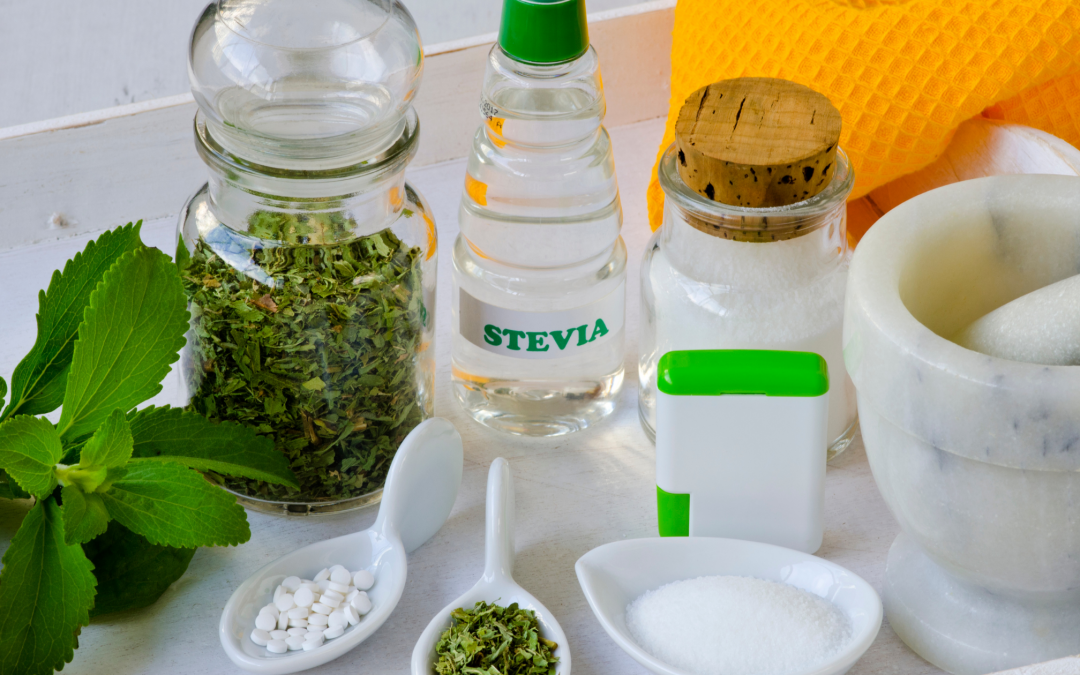The world of dieting can be very confusing. We are bombarded with so much terminology when all we just want to know is how to lose weight and keep it off. And one of the most confusing aspects is sugar replacements or substitutes.
When you decide to cut out sugar but you still need that sweet taste in your coffee, where do you turn?
When you Google sugar substitutes you get all these terms like natural sugars, sugar alcohols, sorbitol, aspartame, agave, xylitol…….etc etc etc. What is the difference? How do you know which one is best for you?
There are basically 4 categories of sugar ‘alternatives’, each with their own pros and cons, depending on your reason for switching from sugar:
Artificial sweeteners ie aspartame
Novel sweeteners ie stevia
Sugar alcohols ie xylitol
Natural sweeteners ie honey
The inclination to go ‘natural‘ :
First off, your logic tells you, natural is good so let’s choose the natural sugar substitutes, right?
But is ‘natural’ good if it does trigger the fat factory in your body?
Let’s get back to basics to understand what we need to consider when choosing a sugar substitute, purely from a Weightloss perspective:
What are we trying to avoid doing?
When you want to lose weight you want to avoid triggering your body to store fat.
And what triggers your body to store fat? … A surge in Insulin.
So to avoid fat storage ie weight gain you need to avoid triggering the most amount of fat storing hormone, insulin.
And SUGAR triggers Insulin.
What is sugar?
Sugar is a carbohydrate and it is present in fruit, vegetables, sugarcane and sugar beet plants.
And an interesting fact for those who believe brown sugar is a better option… Brown and white sugar are both sucrose, has the same energy content and are processed by the body in the same way to become glucose.
Where do sweeteners fit in?
Like sugar, sweeteners provide a sweet taste. What sets some of them apart is that, after consumption, they do not increase blood sugar levels, and therefore do not trigger the fat factory.
So if our aim is Weightloss, which sweetener is best?
These are the choices:
- Natural sweeteners…. Honey, molasses, maple, fruit juice… These are basically the same as sugar ito fructose and glucose and will trigger insulin and the fat factory the same way that sugar does. So in terms of Weightloss, not a good choice.
- Sugar alcohols like Erythritol, xylitol, sorbitol, isomalt, maltitol,
HSH, lactitol… are low-calorie alternatives to sugar. Sugar alcohols are a category of sweet carbohydrates. Several sugar alcohols are found naturally in fruits and vegetables. However, most are processed from other sugars, such as from glucose in cornstarch. Because sugar alcohols have a similar chemical structure as sugar, they activate the sweet taste receptors on your tongue. Unlike artificial and low-calorie sweeteners, sugar alcohols do contain calories, just fewer than plain sugar. Some do have an impact on blood sugar levels and can trigger the body’s fat factory.
- Novel sweeteners like stevia
Unlike artificial sweeteners and sugar, stevia can suppress your plasma glucose levels and significantly increase glucose tolerance. It’s also not an artificial sweetener, technically speaking. That’s because it’s made from the leaves of the steviaplant.
- Artificial sweeteners like
saccharin, acesulfame, aspartame, neotame, and sucralose..
Artificial sweeteners are chemicals added to some foods and beverages to make them taste sweet. Artificial sweeteners are synthetic sugar substitutes. But they may be derived from naturally occurring substances, such as herbs or sugar itself. Artificial sweeteners are also known as intense sweeteners because they are many times sweeter than sugar.
Because they aren’t sugar, these stand-ins are also supposed to protect us from getting the sugar spikes after meals and lower the risk of diabetes.
The safety issue...
Whether non-nutritive artificial sweeteners are safe depends on your definition of safe. Studies leading to FDA approval have ruled out cancer risk, for the most part but we really don’t know what effect large amounts of these chemicals will have over many years. There’s also still a lot we don’t know about what artificial sweeteners do to the human body and brain, and studies trying to show health benefits are inconclusive.
So, if you decide you absolutely still have to have that sweetness in your drinks or meals… which of these many sweeteners do you choose?
If your aim is achieving Weightloss your focus should be on which sweeteners does not trigger insulin. And that eliminates most of the ‘natural’ sweeteners as they all contain sugar, normally as fructose or sugar alcohol.
If you Google safest sweeteners some names may come up… But they may be Safe ito health impact but not necessarily safe ito glycemic index/impact on bloodsugar and weight gain.
If the purpose if to keep insulin stable and not start the ‘fat factory’ the so called safe natural sugar substitutes are not safe as they still have an impact on bloodsugar and therefore weight gain.
So even though ‘more natural’ sweeteners like xylitol, erythritol, agave syrup, and honey are touted as being healthy, if your aim is Weightloss, they can all still have an impact on your insulin levels, some more than others.
So in conclusion, obviously the cleanest, healthiest safest option remains no sugar, no artificial sweeteners or sugar replacements. However, if you absolutely have to have that sweetness, the best option for Weightloss is Artificial Sweeteners (but not necessarily the healthiest). In terms of a healthier choice and still achieving Weightloss, Stevia is a good option. (get your TLC-Stevia at www.tlcforwellbeing.com)
The final word on the subject… When in doubt, practice moderation whatever you use, or avoid sweeteners entirely.

